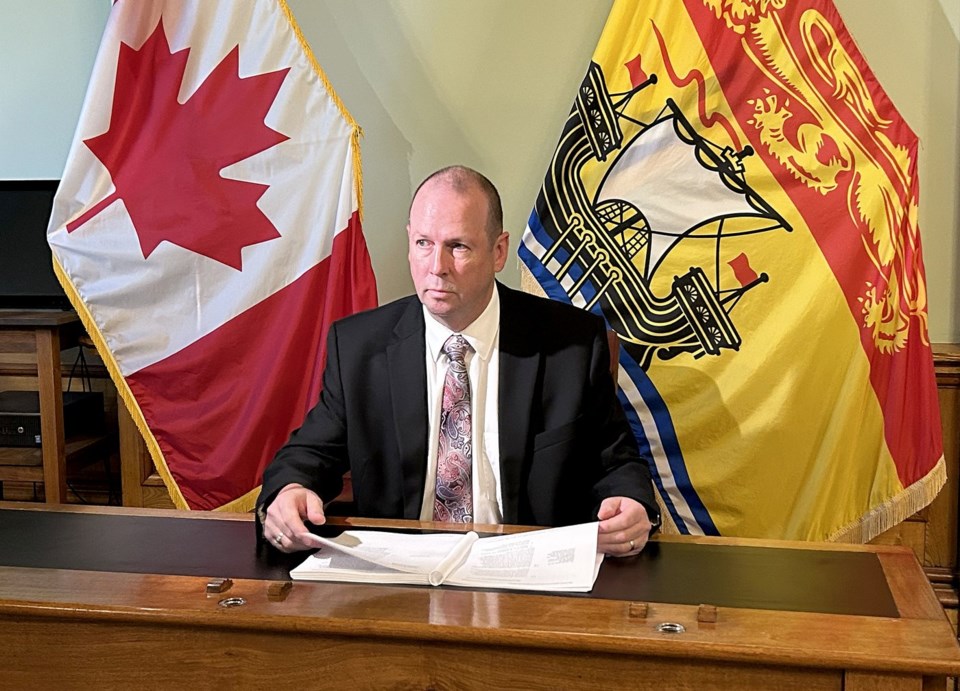FREDERICTON — New Brunswick Health Minister Bruce Fitch says private companies took advantage of the province by billing "exorbitant" charges for temporary nurses brought in to help a strained health network.
"Well, predator pricing — I don't know what you want to call it — when somebody, you know, takes advantage of a dire situation," Fitch told reporters Wednesday at the legislature. "I think there's some rules of business engagement that should be followed. But the price point was exorbitant."
His comments came in reaction to a report Tuesday by auditor general Paul Martin, who concluded two provincial health authorities and a government department failed to properly monitor the contracts awarded for the so-called travel nurses.
Martin said health authorities and the government signed almost $174 million in contracts between Jan. 1, 2022, and Feb. 29, 2024, and did not receive value for their money.
The francophone Vitalité Health Network was the biggest spender, paying more than $123 million on travel nurses over the two years. Available information showed the network paid $98 million of that to an Ontario-based contractor, Canadian Health Labs, which Martin's report said had the "highest pricing structure." Vitalité refused to give Martin's office access to its internal audits of the contracts.
Fitch said the Health Department is looking at whether the health authority should be taken to court to force it to hand over the audit reports. Neither Canadian Health Labs nor Vitalité returned requests for comment.
The health minister said he became "very concerned" about the contracts when the government started to draw up its budget in early 2023. While the health authority boards had the power to sign travel nurse contracts, he said he wished they had shared the amounts with the department.
They had turned to the outside agencies because the COVID-19 pandemic had left the province with a shortage of nurses.
Paula Doucet, president of the New Brunswick Nurses Union, said the extent of the spending and the lack of oversight revealed in Martin's report shows a lack of respect for the permanent nurses in the provincial network.
"It's absolutely demoralizing to the New Brunswick nurses," she said. "The government is always saying that there was never money for retention incentives. But yet there's $173 million to be paid out to private, for-profit enterprises that really have no interest here in the province of New Brunswick."
She said her rough calculations show the nearly $174 million spent could have been used to hire more than 1,000 nurses and solve the shortage in New Brunswick. She also warned that hiring travel nurses is a step toward more privatization of health care.
The auditor general found that Canadian Health Labs charged $306 per hour for a registered nurse and $162 per hour for a personal support worker. Under collective bargaining agreements in the province, registered nurses are paid between $36.41 and $46.13 per hour and personal support workers get between $22.61 and $24.24 per hour.
This report by The Canadian Press was first published June 5, 2024.
Hina Alam, The Canadian Press



